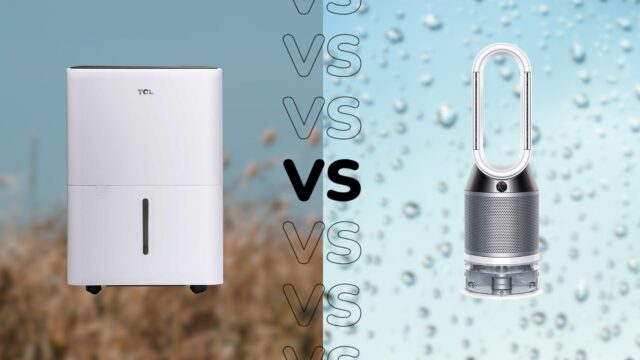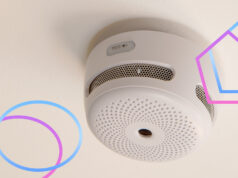Confused by how a dehumidifier differs from a humidifier, and don’t know which one your home needs? We’re here to help.
Below, we explain the differences between a dehumidifier and a humidifier, outline the pros and cons of both, and provide guidance on determining which one your home needs.
What does a dehumidifier do?
A dehumidifier is designed to reduce the humidity in a room by removing excess moisture in the air. Usually mains-powered, a dehumidifier draws air into the device and then, through a process called condensation, removes excess water vapour from the collected air and stores it in the on-device water tank. From here, the dehumidifier then expels the dried air back into the room.
Although a dehumidifier’s primary purpose is to remove excess moisture from the air, it’s thought that drying out the air in your home can also help reduce allergens like dust and pollen.

How to determine if a room needs a dehumidifier
There are a few tell-tale signs that your home needs a dehumidifier. If you notice persistent condensation on windows, water stains or even mould or mildew spots on walls or ceilings, then these are clear indicators that you have excess moisture in the air within your home.
You should also look out for peeling wallpaper, if the air indoors feels clammy, or if there’s a slight musty smell in your home.
While a good dehumidifier can go a long way to removing excess moisture from your home, it’s worth noting that in some extreme instances, dampness may require professional attention.
What does a humidifier do?
While a dehumidifier removes excess moisture, resulting in “dry air”, a humidifier actually works in reverse and adds moisture to the air.
There are many different types of humidifiers, ranging from cold or warm mist models to ultrasonic and evaporative models. While all provide a similar function by adding moisture to the air, they differ in how exactly they work.
For example, an ultrasonic humidifier uses high-frequency sound waves to quietly produce a mist of water, while an evaporative alternative uses a fan to blow water through a disposable filter.


Will a humidifier make my room damp?
Many modern humidifiers have settings that not only ensure energy efficiency but also include automatic shut-off features to prevent the device from running for too long and causing excess damp.
However, there remains a risk that using a humidifier can add an excess amount of moisture to the air. Generally, the ideal humidity level for a room is between 40% and 60%, as anything higher increases the risk of condensation and dampness.
To determine the humidity level of your room, consider investing in a hygrometer, which measures the amount of moisture in the air. Otherwise, some dehumidifiers and humidifiers do have a built-in hygrometer to ensure the moisture levels remain balanced.


What are the benefits of a dehumidifier?
The main benefit of using a dehumidifier is that it removes excess moisture from the air within your home, helping to keep condensation and dampness at bay. However, a dehumidifier can also remove harmful allergen particles and even mould from the air too, helping to create a healthier atmosphere.
On the other hand, overusing a dehumidifier can exacerbate viruses like the common cold or flu and may even worsen skin conditions like eczema. Not only that, but it’s also thought that in extreme circumstances, your skin and hair can become drier as well.
What are the benefits of a humidifier?
Humidifiers can help treat dryness of the skin, nose and throat and can ease symptoms caused by air-borne viruses.
Having said that, it’s worth noting that adding too much moisture can have an adverse effect on your health and home.
As mentioned, excessive humidity can cause excess dampness within the home, but it can also encourage the growth of mould, mildew, and bacteria. To keep that at bay, it’s best to ensure you monitor the humidity levels in your home.









